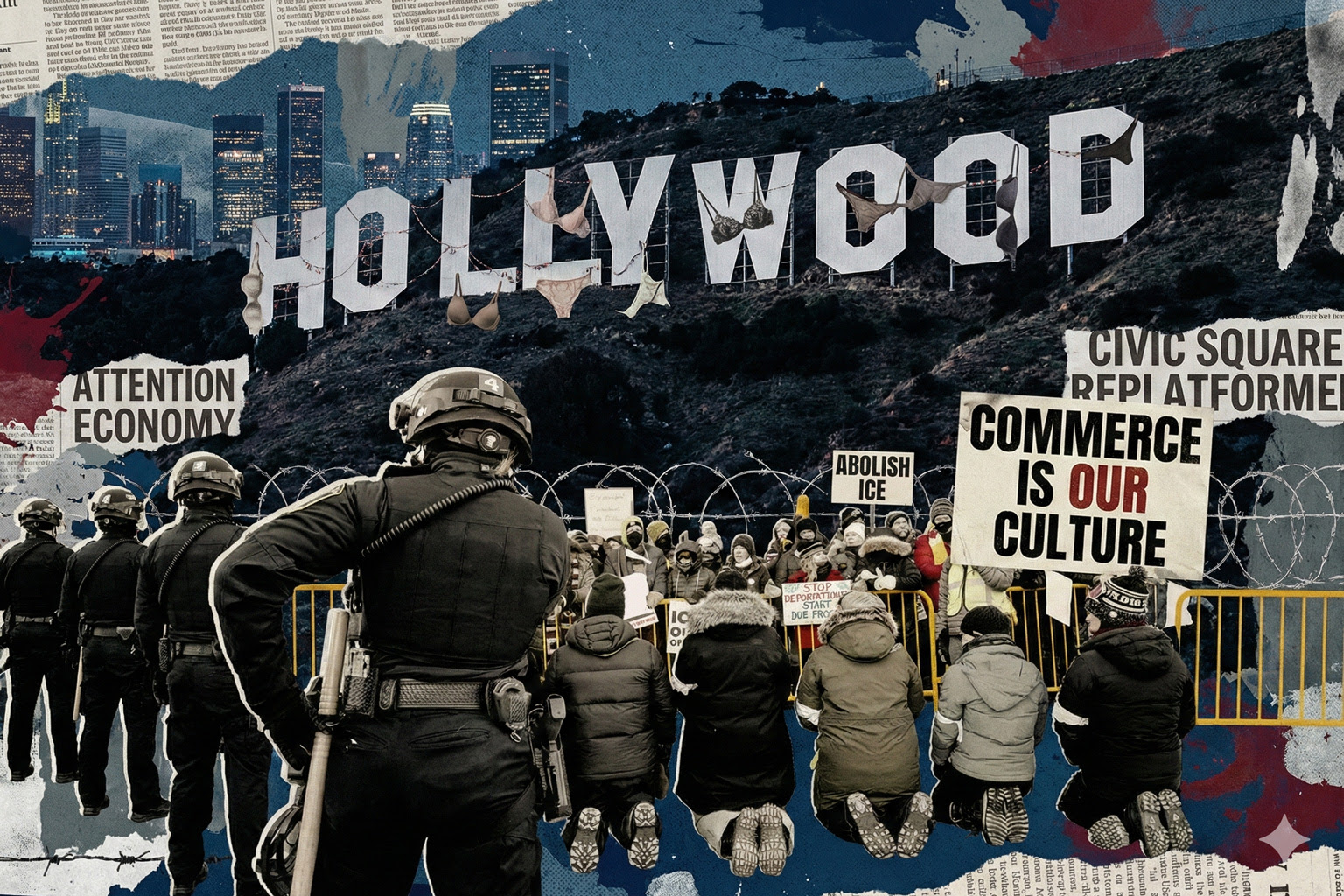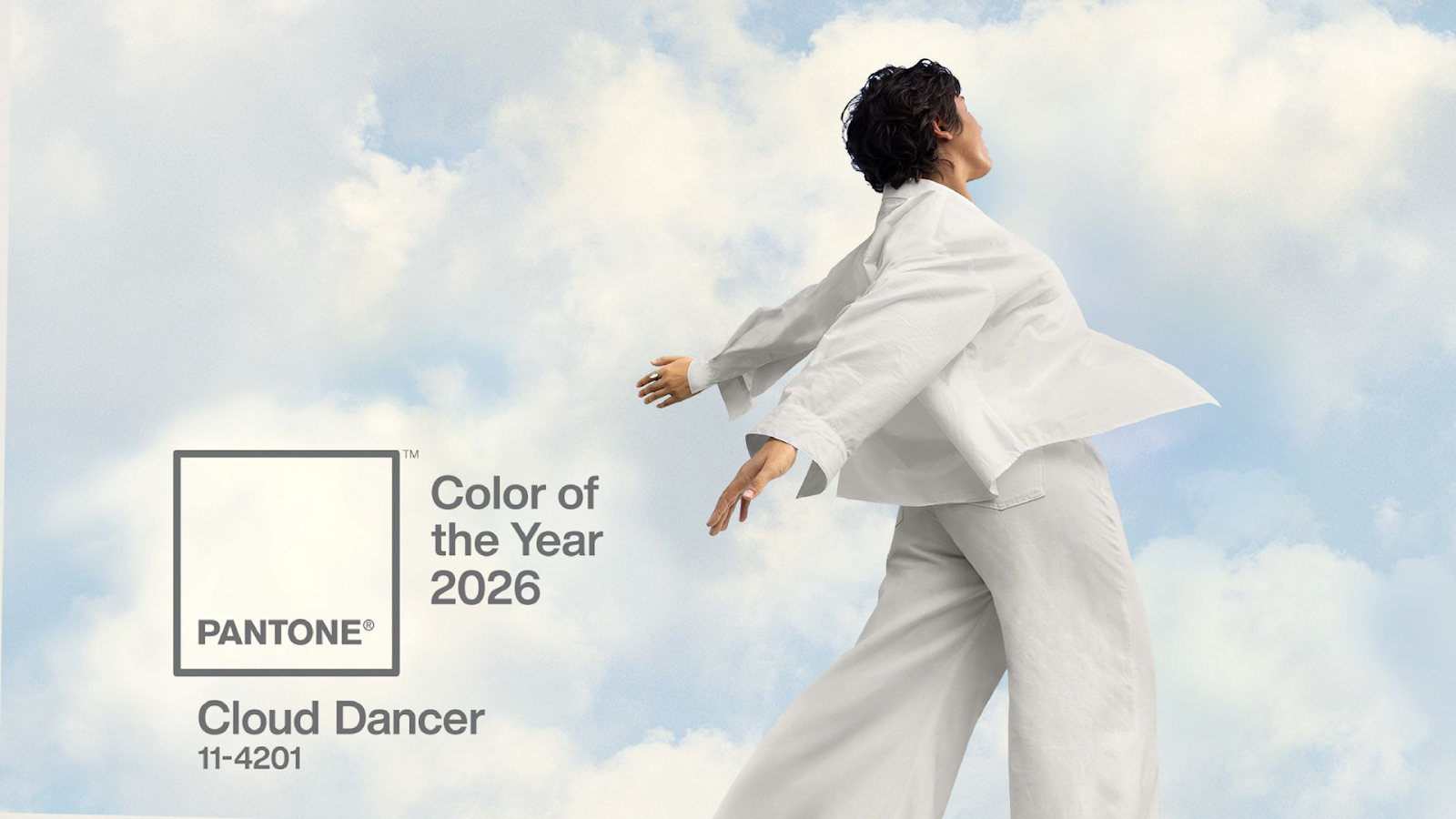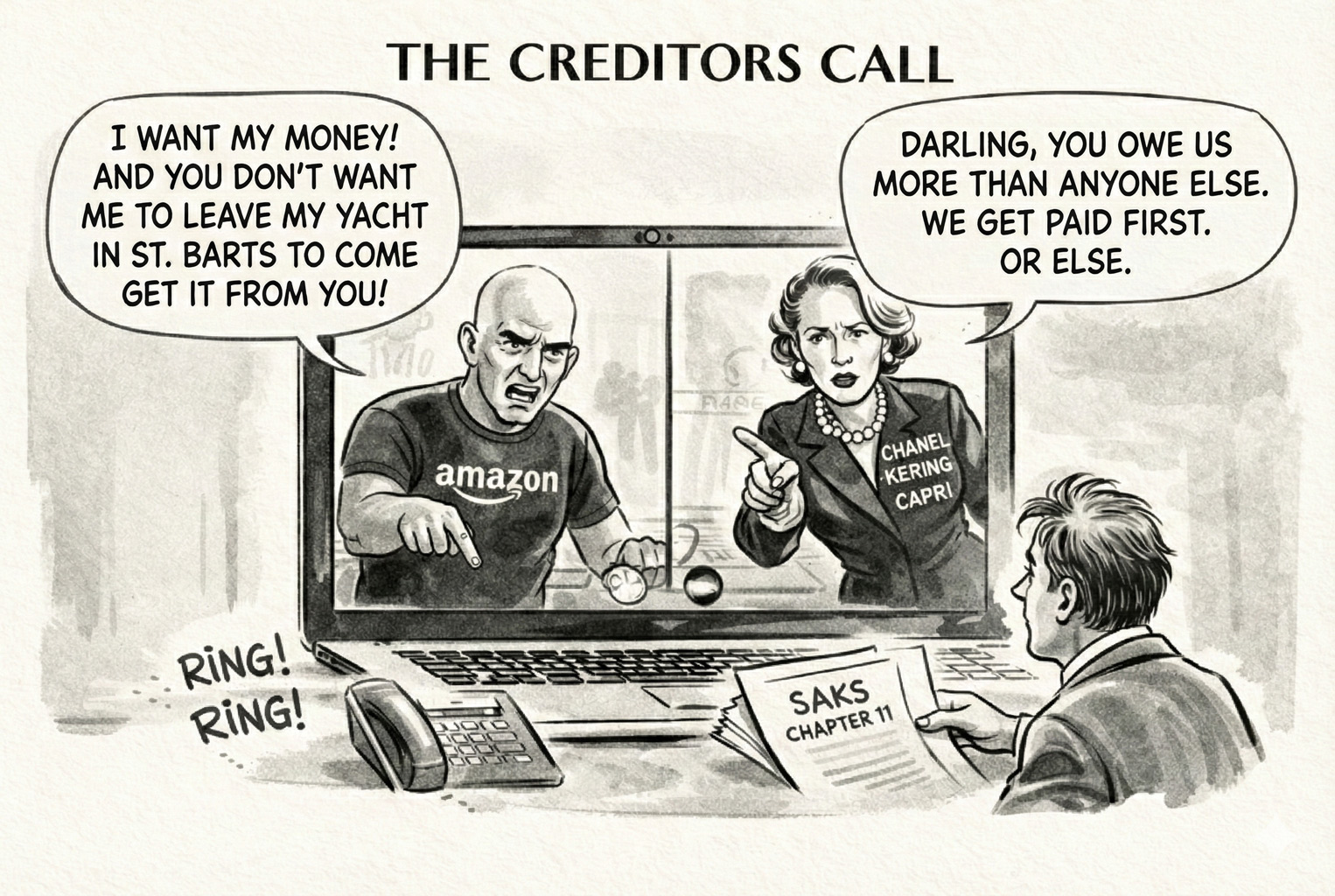
Special Report: Corporations Aren’t People, Too

Happy hump day, futurists.
Ask any eCommerce operator and they’ll tell you they live and die by product reviews. Because of this, the power of a review — and the credibility of the reviewer — has ballooned to a 9-figure global business, and drawn the watchful gaze of the FTC in the process.
This week we saw the power of the creator at work when YouTuber Marques Brownlee issued a scathing review of the new AI accessory, the Humane AI pin…
Corporations Aren’t People, Too

What do creators owe to corporations? If you ask me, nothing.
But the discourse begs to differ. Following a scathing review of the Humane AI Pin by tech reviewer Marques Brownlee, a new conversation has emerged: should those with power wield it?
Set the discourse aside for a moment, because to understand how we got here you have to understand three key happenings that came before it: the personhood of a corporation, the cult of entrepreneurship, and technological determinism.
Corporations ≠ People
In 2010, the Federal Elections Commission lost a decisive case before the Supreme Court against Citizens United, a conservative non-profit founded in the 1980s. The landmark decision created an epoch—the ‘before’ time when corporations were limited in their freedoms, and the ‘after’ times when we began to grant essential liberties to corporations.
The language in how we talk about brands has shifted over the same period of time. Here at Future Commerce, we try hard to maintain an editorial voice that does not refer to a brand with the same sort of decision-making agency as a person. I.e. “brands” don’t choose software; people do.
It’s arguable that the Citizens United decision changed how the culture views the personhood of a corporation. By establishing that corporations have a separate identity from their investors and organizers, the case ruled that corporations are protected by the First Amendment—and that election spending is speech; which became a key ‘feature’ of the 2012 and 2016 election years as campaign spending shifted away from broadcast to digital media.
The Cult of Entrepreneurship
In August of the prior year, 2009, a new television show debuted on ABC—Shark Tank—setting into motion a renewed American fascination with entrepreneurship. The rise of social media helped to deliver new customers to these emergent brands; brands who weren’t so easily separated in their identities from their founders.
If you’re old enough to remember the Hair Club for Men ads on old-timey television (“I'm not only the Hair Club president, but I'm also a client!”) the owner-as-spokesperson was a rarity. Contrast that with today, where founders' personal brands are the brands that they represent. Building a personal brand in the eCommerce ecosystem is tantamount to building the brand.
In our Visions 2022 report, we found that 42% of consumers buy from products to support the brand, despite not liking or desiring the product directly.
Today, if you critique a CPG startup, you’re committing a personal offense to the founders themselves. As I wrote in Revisiting Groupthink and Brand Criticism, “[Critique from me] would likely cast a pall over Future Commerce, and label me as ‘anti-founder’, or worse, causing financial harm to under-represented minority founders… in our space.”
A stark reality—at least in eCom—casting stones at an eCom brand is akin to sharpshooting at the founders.
Tech Supremacy and Determinism
By 2010, the iPhone 4 hit store shelves. It had a glass body, a Retina display, and support for FaceTime; remarkably similar to what we have today. Steve Jobs was still actively involved in product development, and the disruption cycle in the web’s shift to mobile began.
Ethan Marcotte wrote in Smashing Magazine in May of 2010 about a new term—responsive web design (RWD)—which made use of a new browser API that gave developers the ability to vary content by device. “[Website] design and development should respond to the user's behavior and environment based on screen size, platform and orientation,” wrote Marcotte. And millions of websites politely complied.
The disruption cycle in eCommerce gained momentum, and wave after wave of disrupters emerged. Uber, Tesla, Airbnb. The tech-will-prevail determinism took hold.
On Reviews, Critique, and Soft Power
What critics of Marques Brownlee would have preferred is for him to soften, or even shelve, his review. They prefer a form of ‘soft power,’ something that was missing from his clickbait-style titles that usually accompany negative reviews. ‘Soft power’ is the ability to influence others through attraction and persuasion rather than coercion; so a ‘soft power’ version of the title may not read as “The Worst Product I’ve Ever Reviewed” and may be closer to “10 Things I’d Fix with the Humane AI Pin.”
For background, Marques’s main channel, MKBHD, has 18M+ subscribers. He has been credited with driving market reactions, like in the case of his Fisker Ocean review, which happened to coincide with a sharp decline in the stock’s list price. Marques is not merely a content creator, though; he’s also the newly-minted chief creative partner of accessories brand Ridge, as well as its newest board member. Ridge’s products have previously been featured on Brownlee’s channel, such as his Cybertruck review.
To further the argument from critics about the power of MKBHD, the view count is only a partial metric as to influence. The earned media from a negative review creates millions more impressions, and clickbait titles give a casual viewer the general tone and tenor of his perspective.
What Do You Do With Power?
So, the question remains—should those with power wield it? The FTC seems to think so.
In March, the government agency issued guidance on a forthcoming Trade Regulation Rule that would ban fake product reviews and false indicators of social media influence. In that ruling, it may be ruled that a review that intentionally withholds the true feelings of a reviewer is also considered to be false.
The fine for such an infraction is $51,000 USD.
Brand criticism is a fundamentally modern, multiplayer, activity. From Reddit to TikTok comments, critique is a collaborative effort that often builds on prior art and mimetic behaviors. What we’re seeing play out may have begun with a YouTube review, but it sustains due to multiplayer dynamics.
Humane employs approximately 200 employees, down 10% from January 2024, when it performed a layoff. Ahead of Brownlee’s review. Whatever harm was done by negative reviews, there were already endemic issues ahead of the product launch.
An incendiary review from an authoritative source like MKBHD might be the death knell for the discourse, there’s no telling just yet if it harms the future prospects of the Humane business. Don’t count them out just yet; tech companies are deterministic in at least one sense—they learn and adapt. Disruptors aren’t easily disrupted.
Remember, that while 200 people work at Humane, the corporation itself isn’t a person. It cannot be “harmed.”
— Phillip

Sight & Sound. Shopify introduces a competitive compensation model, scoring employees based on their learning speed relative to their coworkers; scores will determine raises. Tarte Cosmetics capitalizes on TikTok Shops, growing to a $100m run-rate in sales largely through affiliate content.

Touch. New Balance unveils a polarizing grey/silver loafer. Coachella attendees experience a rift between traditional ‘festival capital-F-fashion and cutoff denim with cowboy boots.


The Palate. Lionel Messi and Lay’s collaborate to bring fans a special treat with soccer-themed potato chip bags. Heinz and Mattel create 'Barbiecue' sauce, blending vegan mayonnaise and barbecue sauce with a touch of beetroot for a distinct pink hue. After eighty-five years, Rice Krispies Treats released their most requested flavor, chocolatey peanut butter.


Titan Casket’s Joshua Siegel was featured in the first spotlight interview by Sherwood Media, the new media arm of Robinhood. AI beauties compete in the groundbreaking “Miss AI pageant,” judged by both human and AI panels. Disney Plus expands its streaming service by (checks notes) adding channels.











.svg)
